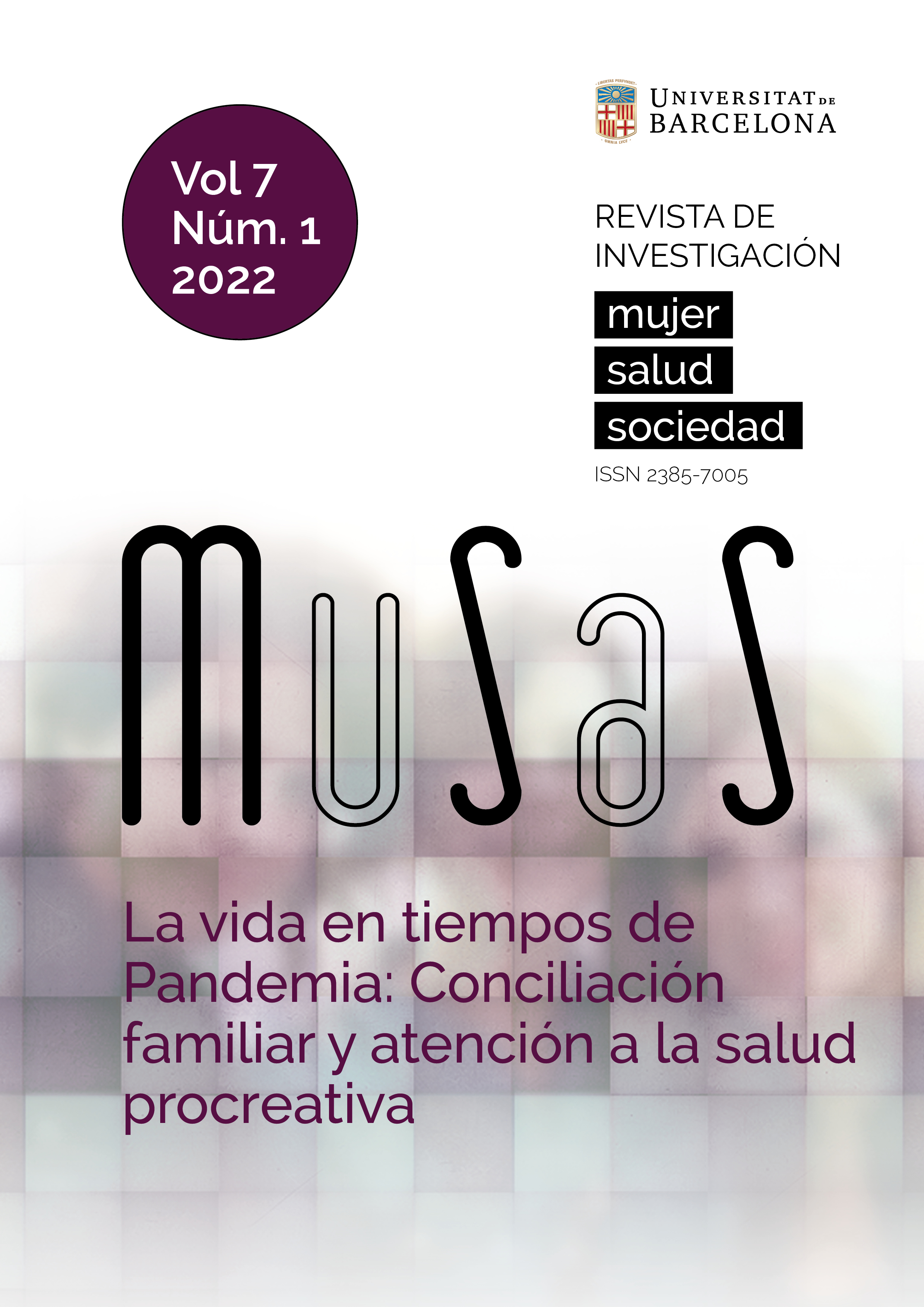How Much Does Women’s Health Matter? Midwifery Care in a Pandemic
DOI:
https://doi.org/10.1344/musas2022.vol7.num1.4Keywords:
Pandemic, Midwifery, Quality of Healtcare, Continuity of CareAbstract
Introduction and aims. In Chile, health services focused on controlling the COVID-19 pandemic, taking extraordinary and immediate measures, prioritizing some benefits and postponing other health care. From there, the question arises about how sexual and reproductive health care is faced in the Chilean health system in the context of the pandemic, from the perspective of midwifery professionals in the Araucanía region. The objectives that guide this study are: To describe the approach to sexual and reproductive health care in Chile in times of COVID-19 pandemic and to explore the care and priorities of midwifery care. Material and method. The study framed in the complex paradigm, with a phenomenological and exploratory approach, using the open interview technique. The professional participants of the midwifery in formative functions and clinical attention to users within the Chilean Health System, selected for convenience. The analysis of the data was carried out from the perspective of grounded theory. Results and Conclusions. As a finding arises the postponement occurred in the care of care in midwifery and the adaptability adopted by this sector in the different levels of care to maintain its commitment to the health of women. It is concluded that sexual and reproductive health care has always been invisible in the "domestication of its delivery" and highly feminized, which makes them dispensable by the health system.
Downloads
Published
Issue
Section
License
Authors publishing in this journal agree with the following terms:
- Authors hold the copyright, but MUSAS holds the right of first publication.
- Manuscripts will be disseminated with the Creative Commons CC BY-NC license, which allows sharing it with third parties as long as they recognize the authorship, the first publication right held by MUSAS and the license’s conditions






